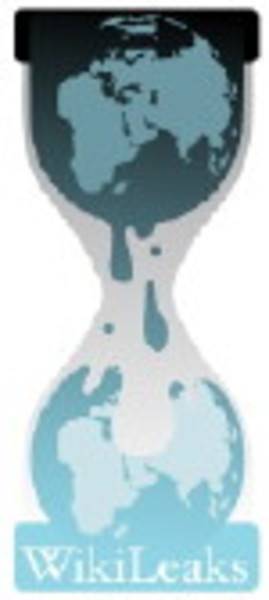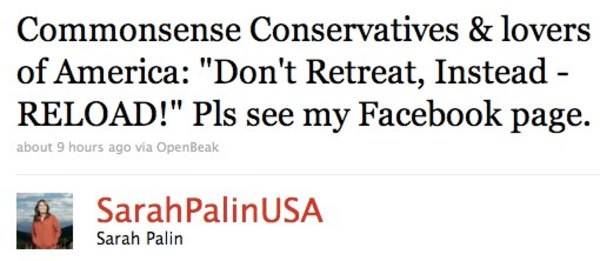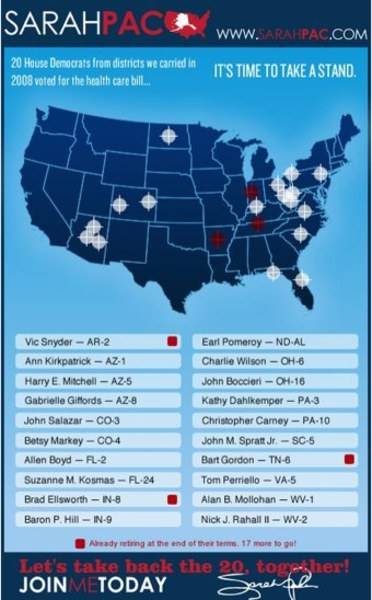The official Twitter account for Wikileaks has posted a press release this evening drawing a comparison between the controversial rhetoric from public figures that some believe contributed to the attempted assassination on Saturday of Arizona congresswoman Gabrielle Giffords and the even more explicit calls from public officials for violence against Wikileaks spokesperson Julien Assange and others. The organization called for public figures making such calls to violence to be arrested and charged with crimes.

Assange is attributed the following quote in the release: “No organisation anywhere in the world is a more devoted advocate of free speech than Wikileaks but when senior politicians and attention seeking media commentators call for specific individuals or groups of people to be killed they should be charged with incitement — to murder. Those who call for an act of murder deserve as significant share of the guilt as those raising a gun to pull the trigger.” The release pointed to specific high-profile calls for Assange’s assasination by Sarah Palin, Mike Huckabee and others and concluded with a link to the website PeopleOKwithMurderingAssange.com.

The release references multiple public statements that to many just seemed like obnoxious bluster when they were made, but admittedly look a little different when examined in light of the Palin gun sights visual calling for the unseating of Democratic congresspeople, including Giffords.
Palin has responded to criticism of the graphic after the assassination attempt and concurrent murders primarily through statements of sympathy for the victims on her Facebook page, though she doesn’t discuss the image itself. Comments that criticize Palin appear to be subject to deletion from the page. A Palin aid said yesterday that the map was never intended to represent gun sights, rather that they were “surveyors marks.” Palin has referred to them as “bullseyes” on Twitter.
From the release:

“WikiLeaks staff and contributors have also been the target of unprecedented violent rhetoric by US prominent media personalities, including Sarah Palin, who urged the US administration to ‘Hunt down the WikiLeaks chief like the Taliban’. Prominent US politician Mike Huckabee called for the execution of WikiLeaks spokesman Julian Assange on his Fox News program last November, and Fox News commentator Bob Beckel, referring to Assange, publicly called for people to ‘illegally shoot the son of a bitch.’ US radio personality Rush Limbaugh has called for pressure to ‘Give [Fox News President Roger] Ailes the order and [then] there is no Assange, I’ll guarantee you, and there will be no fingerprints on it.’, while the Washington Times columnist Jeffery T. Kuhner titled his column ‘Assassinate Assange’ captioned with a picture Julian Assange overlayed with a gun site, blood spatters, and ‘WANTED DEAD or ALIVE’ with the alive crossed out.
There certainly seems to be some logic to the argument Wikileaks is making. Meaningful prohibition of public figures advocating extra-judicial killings of their political opponents might represent an even bigger disruption of the realpolitik status quo than the dissolution of diplomatic secrecy, however. Thanks to the ease of rapid publishing online, it’s now easy for anyone to call for anyone else’s assassination or arrest and find a global audience, but that new capability for any kind of messages, good or bad, to fly far and free, clearly requires a discussion of how to relate to it responsibly.

















